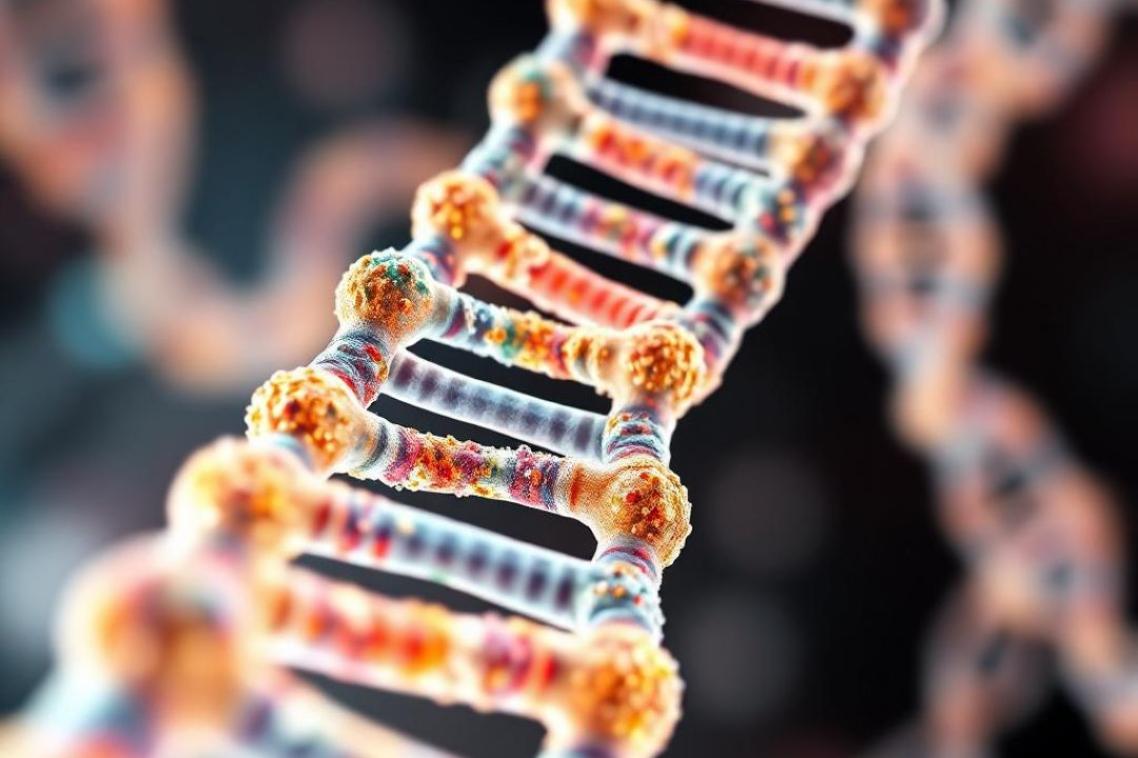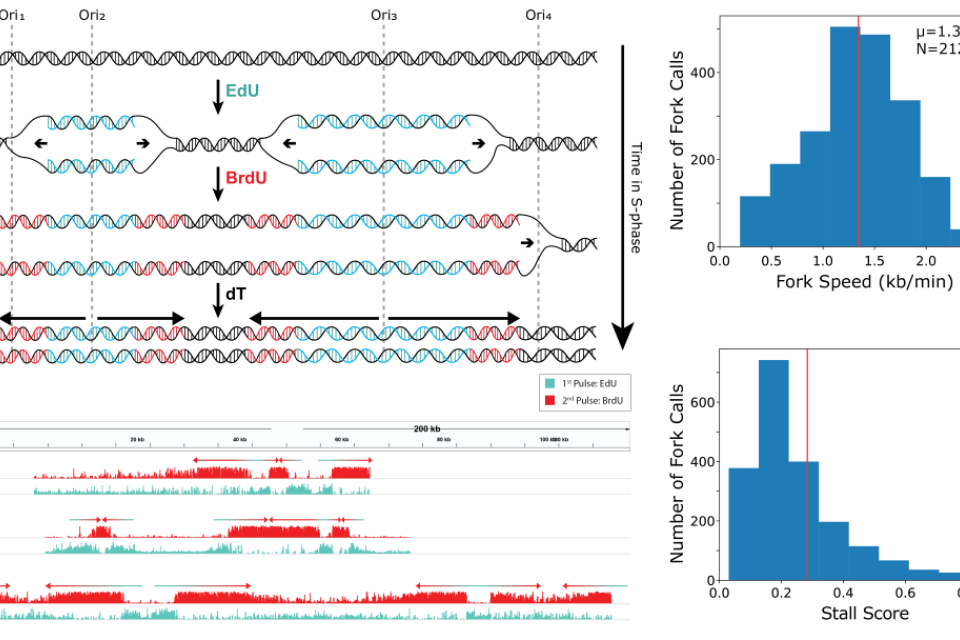AI-powered genomics platform brings hope for better cancer treatments

DNAscent software used AI machine learning to detect the incorporation of synthetic bases into DNA and measure the speed and stalling of DNA replication machines.
(Photo credit: The University of Queensland. )
Key points
- AI-powered DNAscent platform developed by UQ and Cambridge enables precise analysis of DNA replication in cancer cells using nanopore sequencing.
- The platform will improve chemotherapy insights by identifying biomarkers that predict tumour response and measure replication stress, a key cancer trait.
- The eventual aim is for the platform to help develop personalised cancer treatments with fewer side effects.
Researchers from the University of Queensland and University of Cambridge have developed a platform for human cells powered by artificial intelligence that could aid the development of therapeutics and personalised treatments for cancer patients.
The platform – called DNAscent - combines AI software with nanopore DNA sequencing to study how DNA is copied in cancer cells, and what happens when that process is disrupted during chemotherapy.
UQ Frazer Institute senior research fellow Dr Mathew Jones said that DNAscent will help researchers identify biomarkers that can better predict how tumours will respond to chemotherapies.
DNAscent is a method to more accurately measure DNA replication stress: a hallmark of cancer characterised by the frequent slowing, stalling, and collapse of ‘replication forks’, the machines that copy DNA inside healthy and cancer cells.
“Unfortunately, chemotherapies can also impact the DNA replication machinery in actively dividing healthy cells, which causes unwanted toxic side effects, such as hair loss, and severe blood and gastrointestinal symptoms,” Dr Jones said
“Ultimately the goal of this research is to develop chemotherapies that are cancer specific, with fewer toxic side effects.”
Dr Jones said further work will be required to prepare DNAscent for clinical applications, but he was confident the technology has already superseded earlier methods.
Development of the DNAscent platform for human cells has been a joint effort between UQ and University of Cambridge colleagues, including Assistant Professor of AI in Disease Dr Michael Boemo.
Dr Boemo developed the DNAscent software and AI models alongside PhD student Pauline Pfuderer. The work was not without its challenges, Dr Boemo said.
“One of the challenges was detecting very subtle and contextual changes to a signal, and we needed to do this very reliably in order to ensure our measurements of replication fork dynamics were accurate,” he said.
“AI, and the training methods we developed, were instrumental in enabling us to do that.
“While the primary aim of this project was a tool to aid the development of cancer therapeutics and personalised medicine, our AI model can also generalise to other genomes, including outlier genomes like those of malaria parasites.”
The research has been published in Nature Communications.

DNAscent software used AI machine learning to detect the incorporation of synthetic bases into DNA and measure the speed and stalling of these replication machines. The long-term goal of the Jones laboratory is to use this software to develop biomarkers for predicting how cancer patients will respond to chemotherapies, providing personalising treatments that improve patient outcomes.
(Photo credit: The University of Queensland.)
Topics
Related articles

